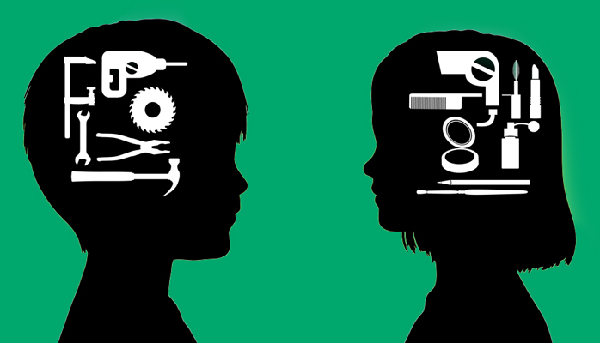It has already been established that in our society, women are affected by gender bias. We live in a patriarchal society that has historically placed men (specifically white men) in positions of power. Slowly, we are rewriting our norms and fighting for a space for women, especially women of color. While we hear about all of the advances women are making in society, how much are we truly affected by gender bias in our careers?
First, let’s look at the most female dominated positions in the United States. According to a 2015 article on Catalyst:

The majority of these positions are care and assistant positions. Women are not dominating science, technology, engineering, and math (STEM) positions, nor leadership positions. Women and girls are battling biases that are placed on them by others and themselves when choosing career paths. Growing up in a society that correlates math and science with boys makes it hard for girls to feel as if they belong in that setting. This continues into adulthood. The same goes for leadership positions. When women are dominant they are more likely to be stereotyped as bossy when compared to men. As a society we have placed the value of leadership as a male dominant trait. Further, women are less likely to be seen as competent and capable of handling leadership roles. As women enter male dominant fields they are fighting stereotype and biases every step of the way. While much of this may be felt in social interaction, it also has tangible affects on our salaries. As women enter male dominant fields, the salary drops (New York Times).
However, these negative stereotypes are not stopping women from striving for leadership. According to a Washington Post article, a recent research study found that black women are more likely than white women to strive for executive positions. Yet, black women are more likely to feel stalled and unrecognized in their careers.
And yet when it comes to how African American women are judged on their performance, research shows they face a bigger challenge than their white peers. “If a black woman makes a mistake and a white woman makes a mistake — or even a black man makes a mistake — the black woman is penalized most harshly,” Livingston said, “because she’s two degrees removed from the prototype of a ‘leader,’ which is a white male.”
Gender bias has far reaching effects on our careers. It affects our choice of career field, our advancement in our careers, our work relationships, and our salary. For women of color, we have to add on racial bias; separating us further from mainstream US society.
How do we even begin to make changes in our society? We start with our girls. We give our girls role models and support as they begin navigating this society and the career field. This is why Career Exploration is a pillar of the Polished Pebbles Girls Mentoring Program. We provide direct experience in STEM and leadership for our girls so that when they enter the workforce they know they are capable.
That is what we want from our girls–for them to believe they are strong and capable of achieving their goals.

